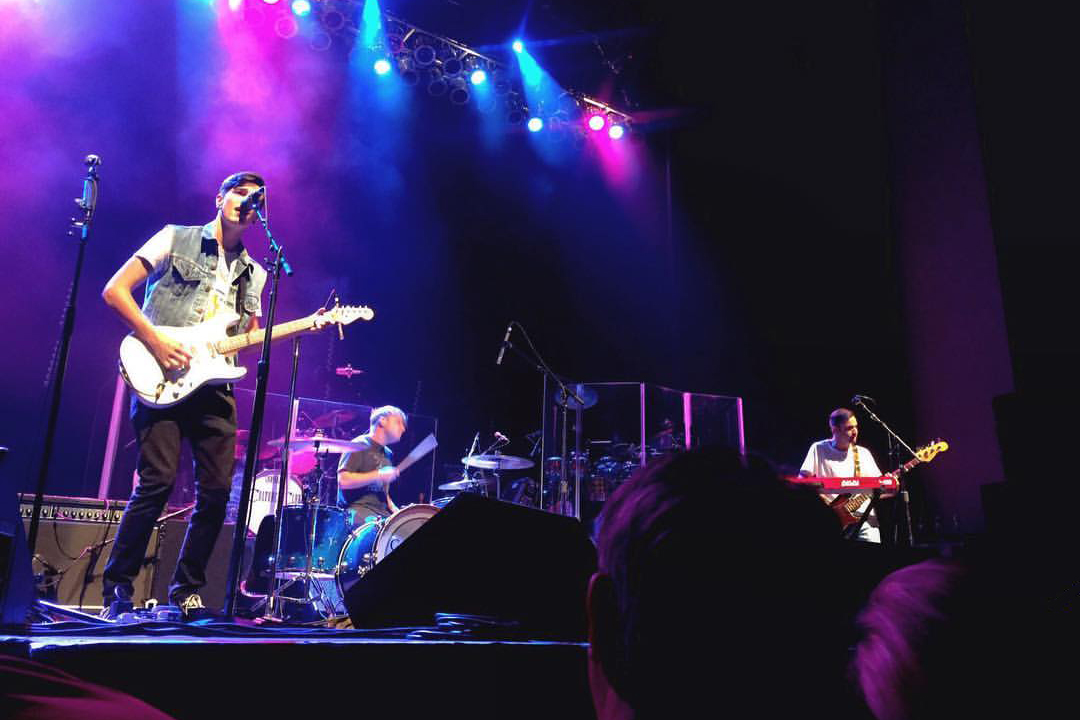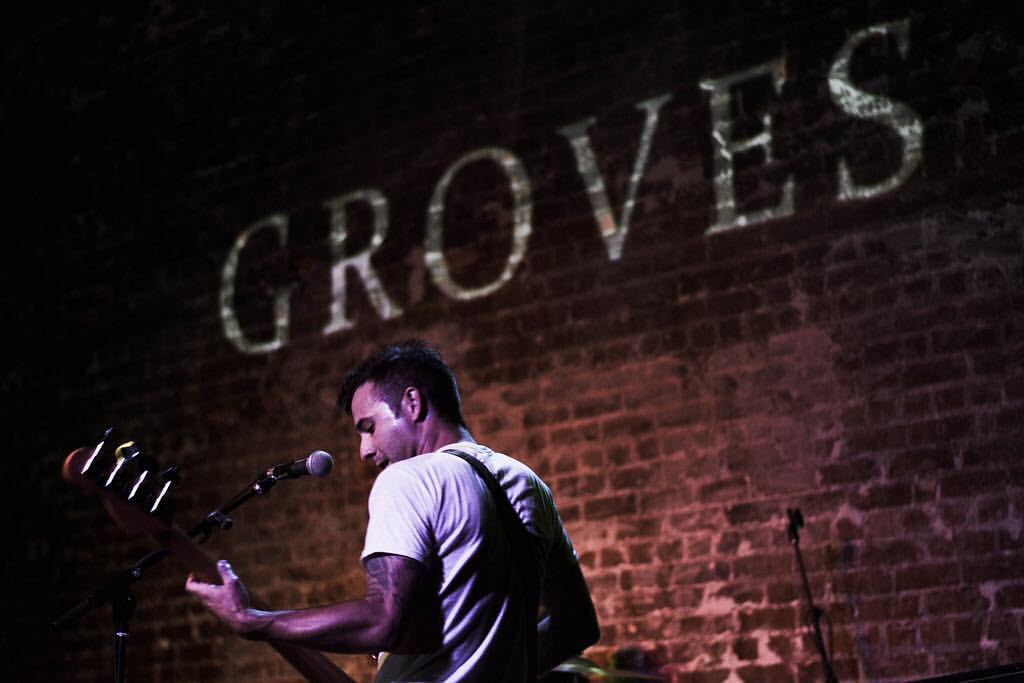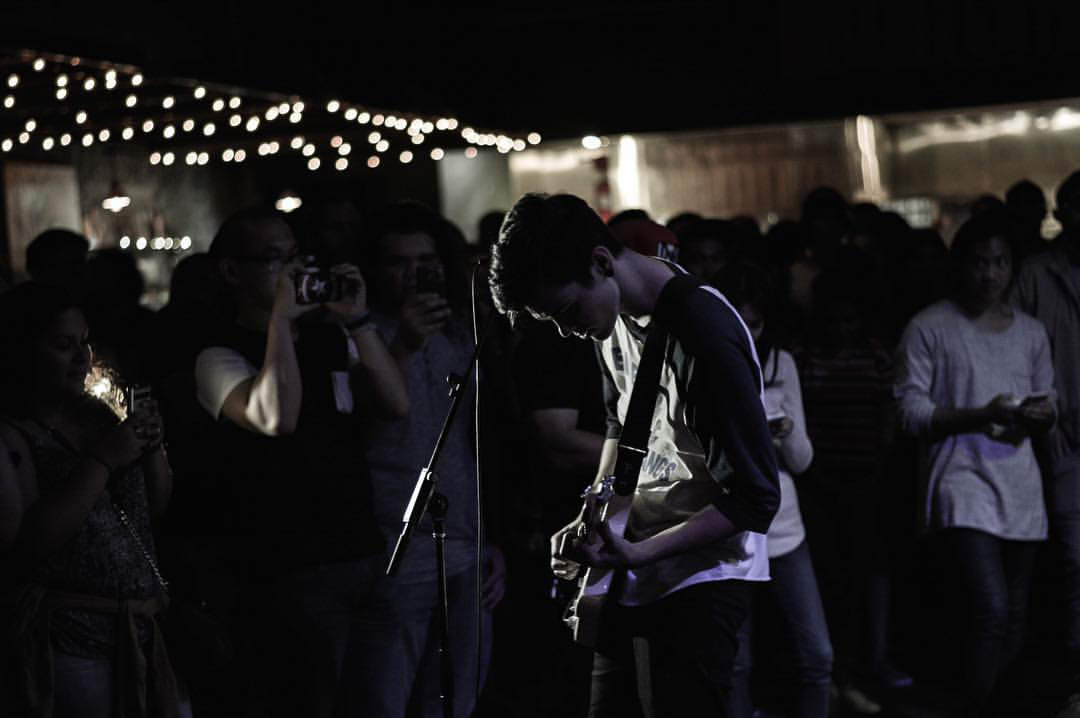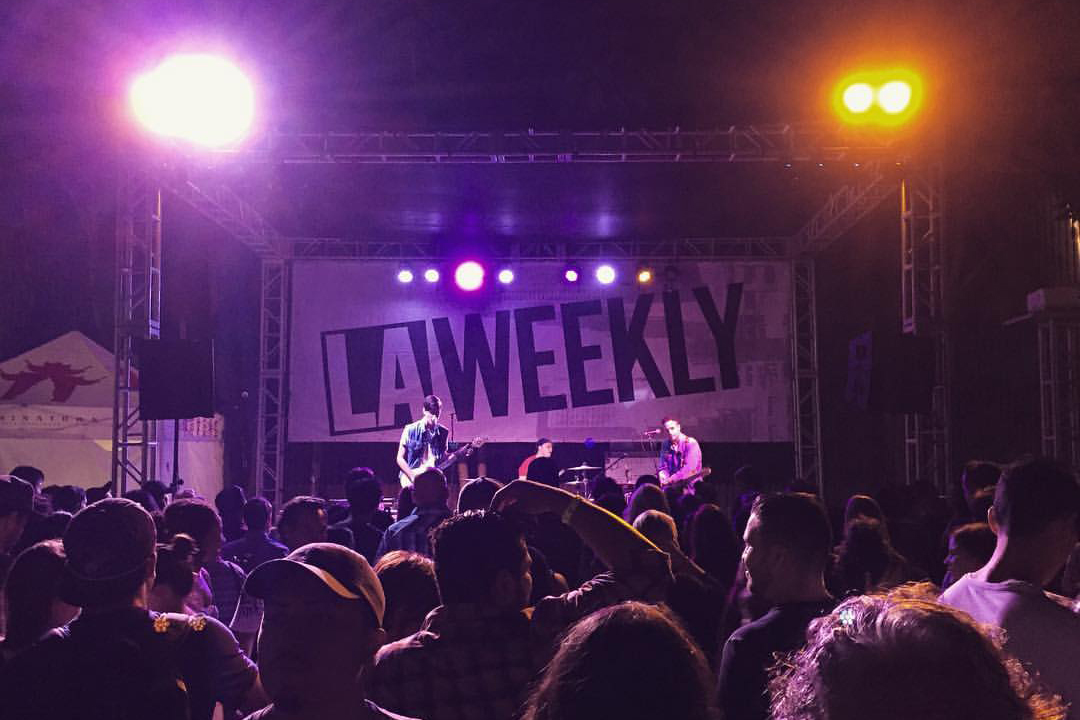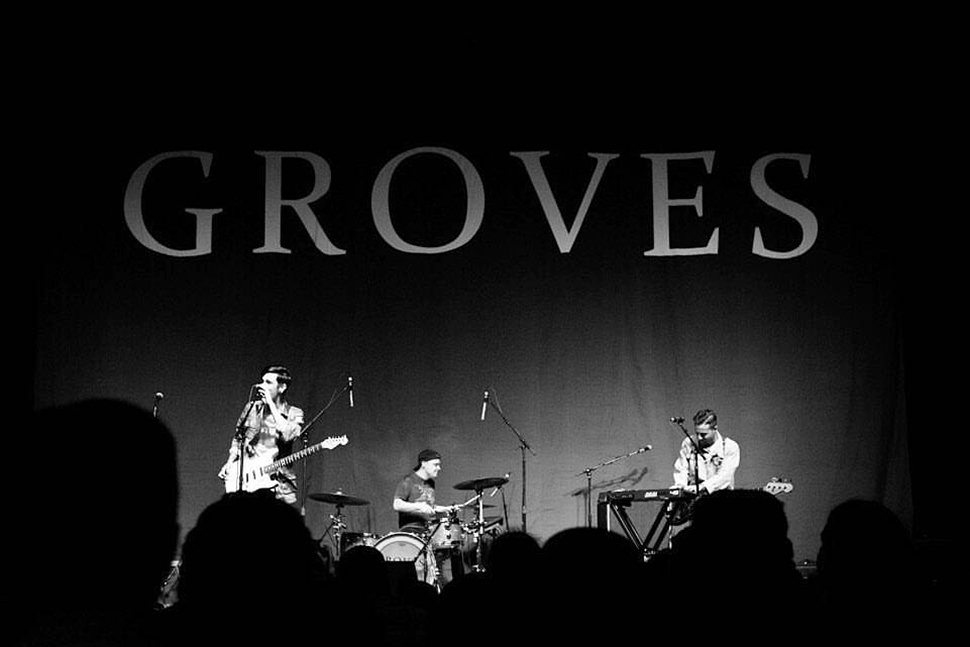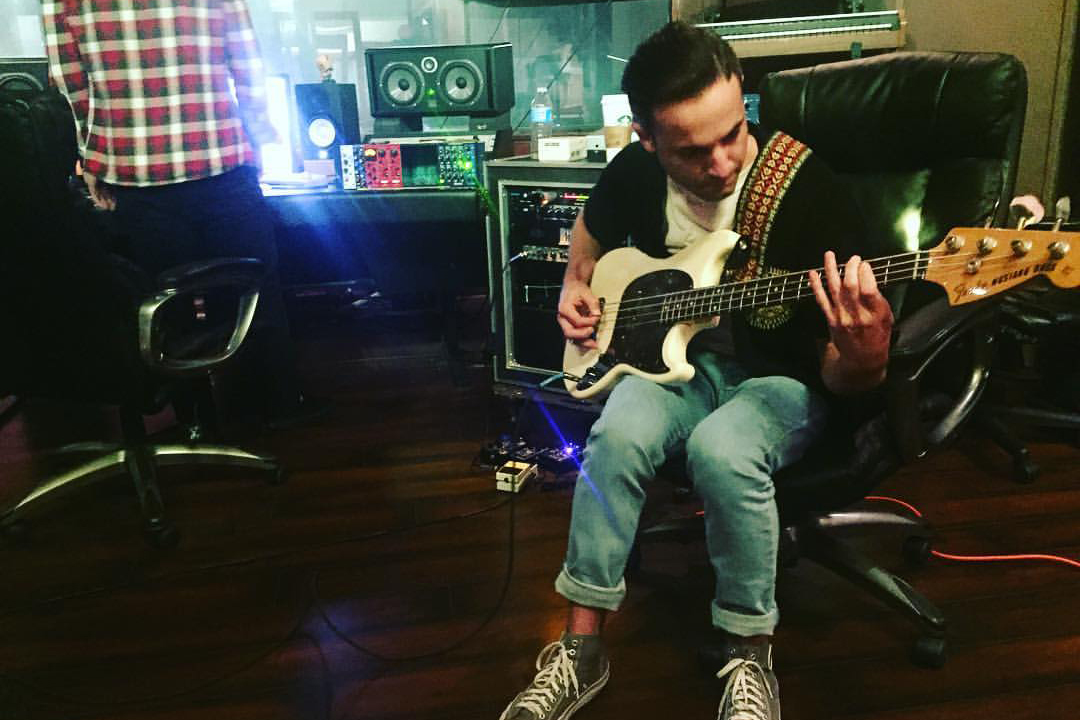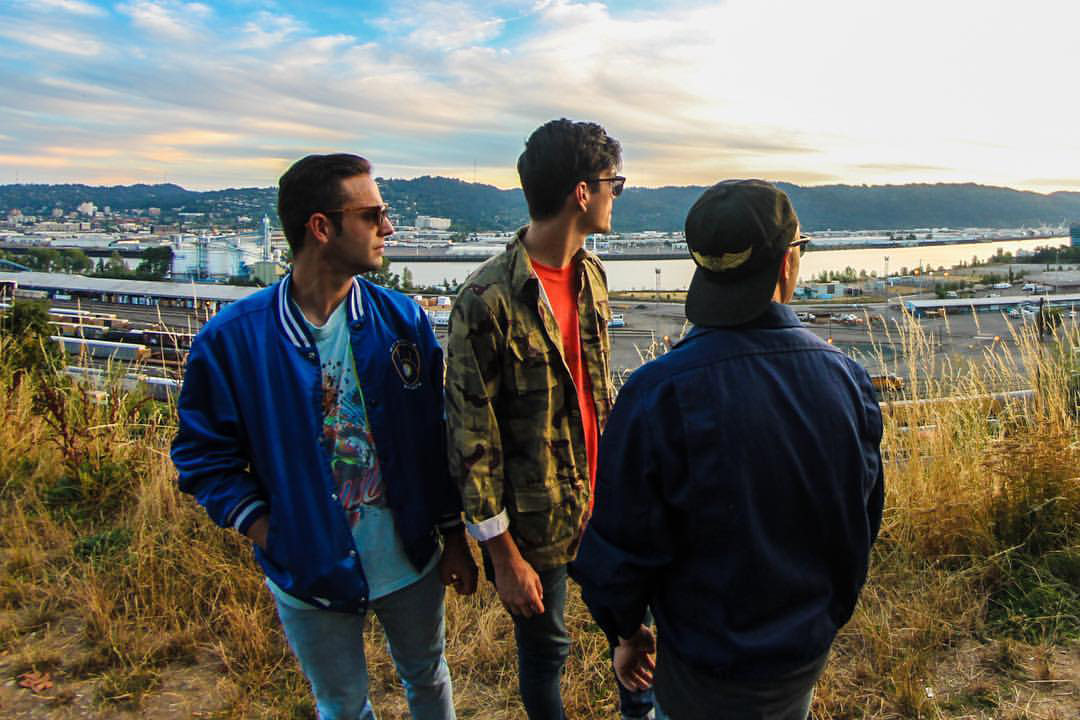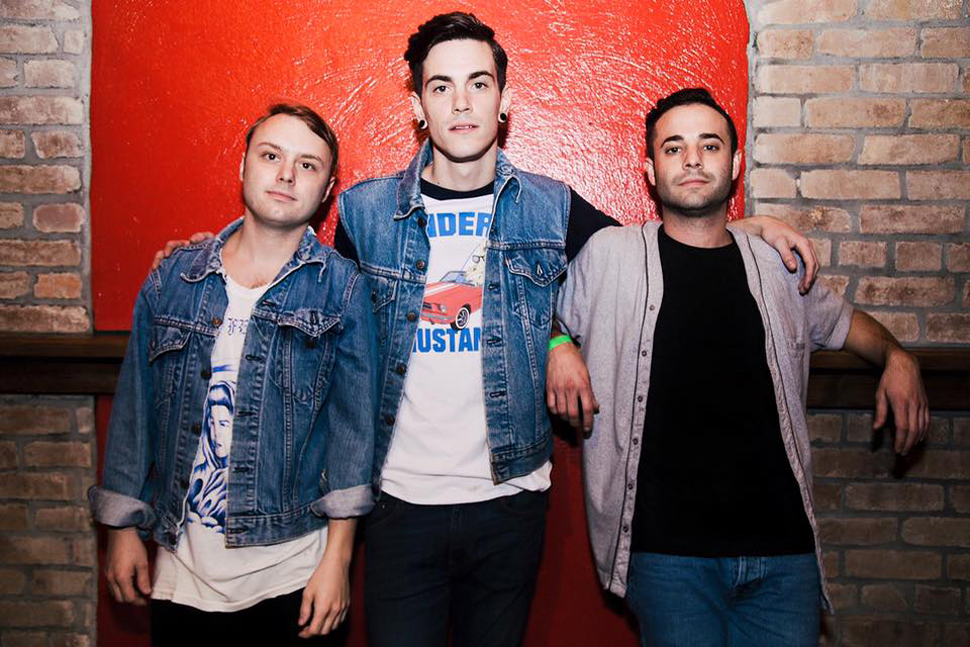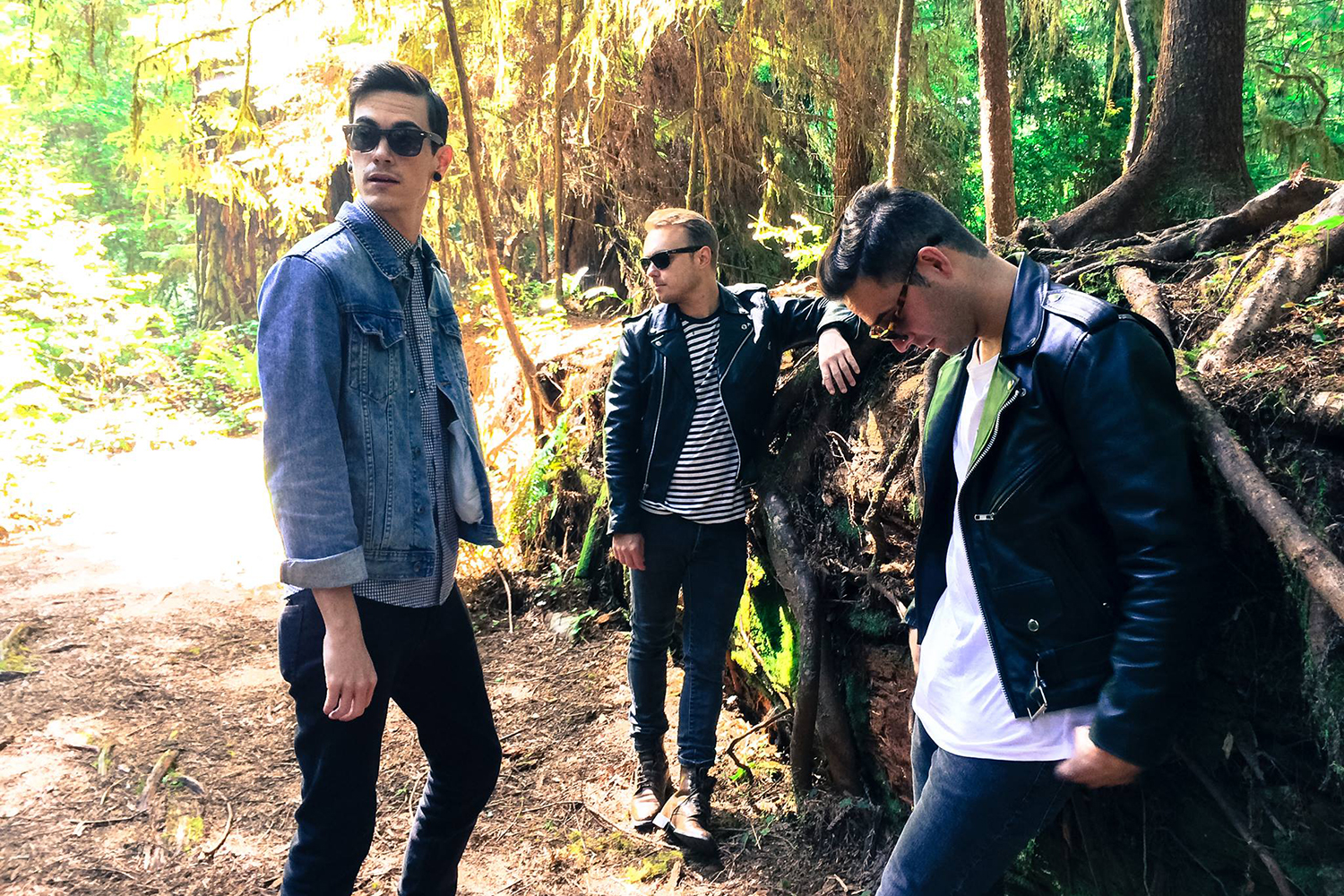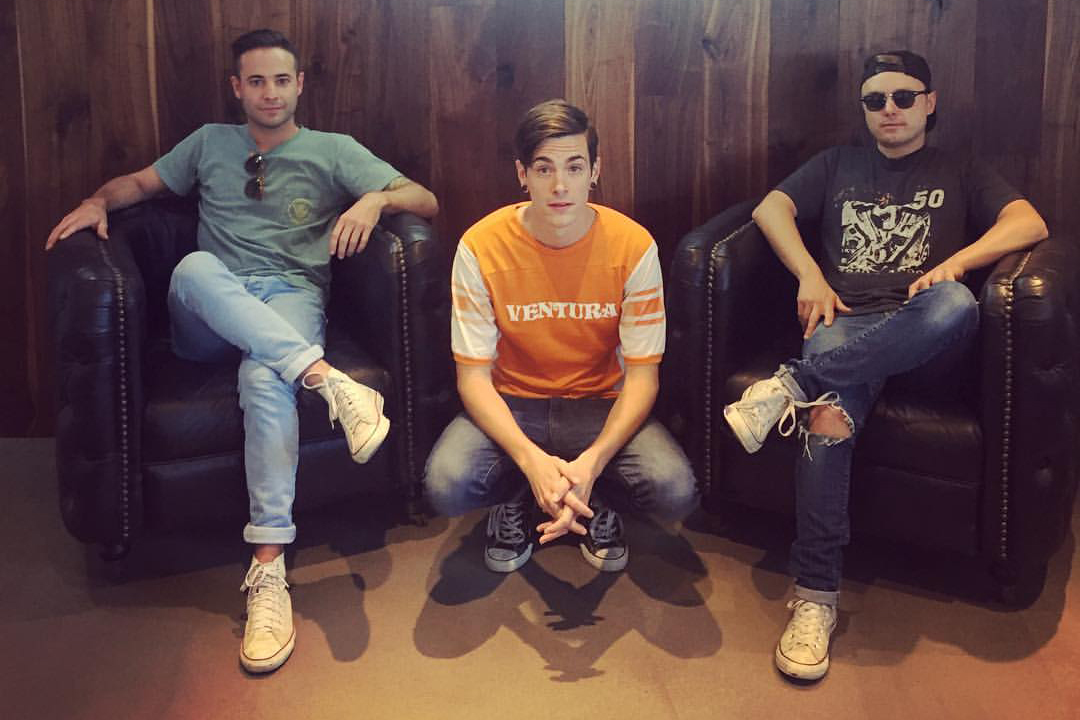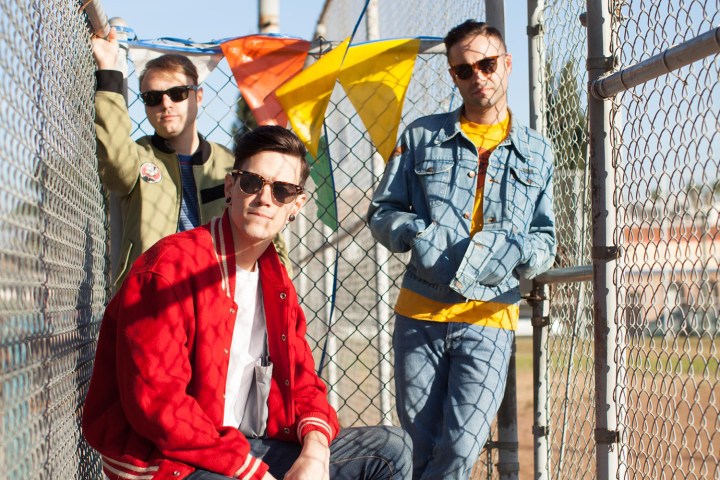
“I’m not trying to make 10 dollars an album — I’m trying to make 10,000 fans, and then have them come to my show.”
How does a young band make it these days? It’s important that its members are flexible enough to embrace electronic music and marry those elements with strong songwriting chops and instrumental prowess. It also doesn’t hurt to get discovered by well-known musicians who can assist in getting the big ball rolling but will step back and let the group do its own thing. Finally, it’s essential to embrace streaming wholeheartedly and see where it leads.
Checking all the right boxes is a band called Groves, an electro-rock trio from Los Angeles by way of the town in Texas from which they took their name. With only a pair of uber-catchy songs under their collective belts — the driven singalong dreamscape of Ender and the submersive minimalist jangle of Swim — Groves nonetheless caught the attention of MDDN, the management company formed by brothers Benji and Joel Madden of Good Charlotte fame.
Another set of famous ears tuned to what works in the music industry listened in. Boy George of Culture Club loved what he heard in the Groves grooves, and before you could say Karma Chameleon five times fast, Groves was out on the planks doing a 30-minute, seven-song set opening for Culture Club on their summer reunion tour.
An album is such a prestigious thing, especially the first album you do.
“Ender made sense to put out first, because it was the first song we ever did,” vocalist/guitarist Stephen Salisbury told Digital Trends. “Then we had to figure out what to put out next. We wanted to put out a song that really showed the identity of the band. We were trying to find the left-field with Swim — and I do love that song, but we have many more sides to our music.”
The depths to those sides, it would seem, are practically endless. “When we get around to releasing our album, people will hear those two songs over in this lane, and then they’ll get who we are overall with the rest of it,” Salisbury continued. “That’s not to say you’ll be getting ten different bands when you hear it. For us, it feels like one big body of music. It all has one consistent feel.”
Added drummer Will Smith, “We also liked the irony of releasing a song called Ender first. It was part of the allure of doing it that way.” Essentially, Ender is merely the beginning for this promising young L.A. band.
Digital Trends sat down with Groves backstage at the Count Basie Theatre in Red Bank, New Jersey an hour before their opening set for Culture Club to discuss mixing genres in the modern way, embracing the streaming age, and how they prepared to play onstage with a pair of ’80s legends in San Francisco.
Digital Trends: How do you achieve the balancing of electronic elements with more traditional instruments in your songs?
Will Smith: We do a pretty cool blend of digital MIDI stuff with instrumentation since we’re a real guitar, drum, and bass-driven band, with a couple of synth things in there as well. Oh yeah, we’ve got some tricks thrown up our sleeves!
Stephen Salisbury: First and foremost, we found our identity as a band in the studio. We got to play with a lot of new toys, and we ended up writing a lot of new songs that way.
Subscription music won’t save the industry, but it will help it for the time being.
There are only three of us, but we wrote these big and beefy songs with different undertones and guitar harmonies. Live, Reid has double-duty — he plays bass and keyboards at the same time — and I can also trigger some loops.
Reid Guidry: I have to prioritize what I’m doing in any given song. We each try to tackle the most significant thing, because there’s only the three of us out there.
Who chose the vintage Mustang for the Swim video?
Salisbury: Josh Madden [the third Madden brother in MDDN]. We weren’t sure what it was going to be, but we knew it was going to be a classic convertible.
Guidry: He showed us a picture of it at the last minute. I was the only one who got to drive it, because it was in my name. We were all laughing when we were driving around, going, “This is what it feels like to be a girl walking around in a bikini.” (all laugh) Everybody is just yelling at you.
Smith: And we also had a drone flying over us while we were going down the highway, so people were like, “What’s going on?” We had the option of having it red or that blue you see — which I don’t think was the original paint, though the red was. We trusted his judgment, because the blue blended a little better with the vibe of the song.
Let’s talk about streaming. Is it something you embrace as a young band?
Smith: I think it provides an enormous opportunity for bands. We’ve arrived at a certain circumstance in entertainment where it’s a whole different ballgame now — it’s the wild, wild West.
For a band like us, it’s awesome to see our growth and reach certain demographics without having a label involved, or having a big machine behind us. We’re in control of our destiny now. There are a lot of positives to it.
Salisbury: I think it’s different because we’re such a brand new band. It’s a different mindset than someone who might be coming from the classic era. We might not make the money like we would have back in the day when people were buying music. What’s shifting is the way bands make money in general. I’m not trying to make 10 dollars an album — I’m trying to make 10,000 fans, and then have them come to my show.
Smith: Being in a band now is more of an always-live experience. You’re on all the social media outlets; you’re bringing the tour to the kids and the fans. That whole motion never stops, you know what I mean? The cycle is live at all times.
It’s only going to get bigger. People you won’t expect are going to start streaming music.
Salisbury: I pretty much listen to all of my music through streaming. For me, it’s about accessibility, as someone who’s always on the go. Whenever I’m at the computer, I just pull up YouTube or Spotify, and listen to it.
I’m a huge believer that it’s probably only going to get bigger. People that you wouldn’t expect are going to start streaming music. For a band like us, the internet is almost limitless. It’s really the best way to contact anyone, other than going to their town and playing for them.
I do pay the premium so the artists can be paid something, at least. That’s an area that could still be improved.
Smith: The way things are being distributed right now is a little off-kilter, but with artists getting more knowledgeable about that, I think that paradigm will shift.
Salisbury: I pay for Apple Music and can get whatever I want, and that’s cool. But the artist has got to make something at the end of the day, somehow. Subscription music won’t save the industry, but it will help it for the time being.
Each of you tell me what your favorite album is — the one that remains your talisman to this day.
Salisbury: Oh, wow. For me, my first favorite album was Ride the Lightning (1984), by Metallica. I remember being a child and seeing the artwork, knowing it was cool. The color scheme of the black, and the blue — it’s just something I’ll never forget. It was burned into my brain. I remember talking about it as a kid, basically as the only album I even knew, just because my dad had a poster of it on the wall.
Smith: I know my first favorite song — it was Breaking the Law, by Judas Priest [from 1980’s British Steel]. I was like 6 years old, and I could not get over that song. I just kept telling my dad how much I wanted to listen to it.
My first album was Elvis Costello, My Aim Is True [1977]. Before I discovered my own identity in music, I was still listening to what my dad jammed to. I got the point of listening to blink-182 and Green Day, and then I really got into punk rock once I started becoming an adult musician.
Guidry: I would say blink-182’s Enema of the State [1999] was the first album I loved and obsessed over.
You guys had a cool guest join you onstage in San Francisco [on August 16, at Warfield Theatre] — Jerry Harrison of the Talking Heads. Did you know that was happening beforehand, or was that an in-the-moment thing?
Salisbury: We were trying to figure it out all the way up to soundcheck. None of us had ever played Psycho Killer before [from Talking Heads 77].
Smith: The whole thing was a 48-hour experience! That was the first time we had ever met Jerry, and the magic really happened during the soundcheck, when everyone was hanging out. It was a real organic experience. By the time we went onstage, we knew it was going to be alright.
Steve, you and Jerry had a nice jam together near the end, for about a minute or so. He kinda let you take over, too.
Salisbury: (laughs) He was a very nice guy. When he first showed up, I was willing to do whatever he wanted to do, and then it evolved from there. We were just so honored to be involved in the whole thing in the first place.
Being in a band now is more of an always-live experience. The cycle is live at all times.
We had been in touch with Jerry a few weeks before that show, and talked about having him potentially come out and play during one of our songs. And then, in a weird moment about 48 hours before with [Boy] George, he expressed that Psycho Killer was his number one played song on Spotify. He knew the song, and he was ready. We had another conversation with Jerry, and he was down for doing it with George. That morning, we figured out this was actually happening.
Guidry: The night before, we were in a hotel room, trying to play the song with each other. Will’s beating his hands together, going, “OK, we’re going to do this!” When we got to soundcheck, it was literally the first time we had ever played the song as a group. George just walked up and started singing it, and we were like, “Hey — this might actually work.” An hour after soundcheck, we played it, and it went really well.
Salisbury: That was the first time I had done something like that where I didn’t feel super-comfortable. Usually I rehearse myself to the point where I’m ready to play in front of a lot of people, but then to play with legends — it was an awesome experience. There was a lot of adrenaline there, doing something we were real nervous about.
So what comes next after these two songs? You have a lot of hard questions to face — like, how many songs do you put out, when do you put them out, and in what format?
Guidry: We can’t wait for people to hear what we’ve been working on and how many different genres we pull from.
Salisbury: We tell people in interviews what we’re working on is kind of like Black Sabbath meets Dr. Dre, but they can’t hear it. There’s a lot of stuff we’ve done that isn’t out yet. It’s an ongoing conversation.
Smith: We’re working on that right now. It’s a conversation that keep evolving.
Salisbury: We all have our opinions about it. At this point, we only have two songs out, but we’ve been doing a 30-minute set while touring with Culture Club. We have a lot of ammunition already. Me, I’m interested in at least putting out a small body of music in the very, very near future for all of the fans we’re making on this tour.
But if we decided we wanted to do a full-length album after that, I would want to go back in and record more material, and swing for the fences with it.
Guidry: An album is such a prestigious thing, especially the first album you do.
Salisbury: And here’s the thing — a band’s debut album can’t flail.
